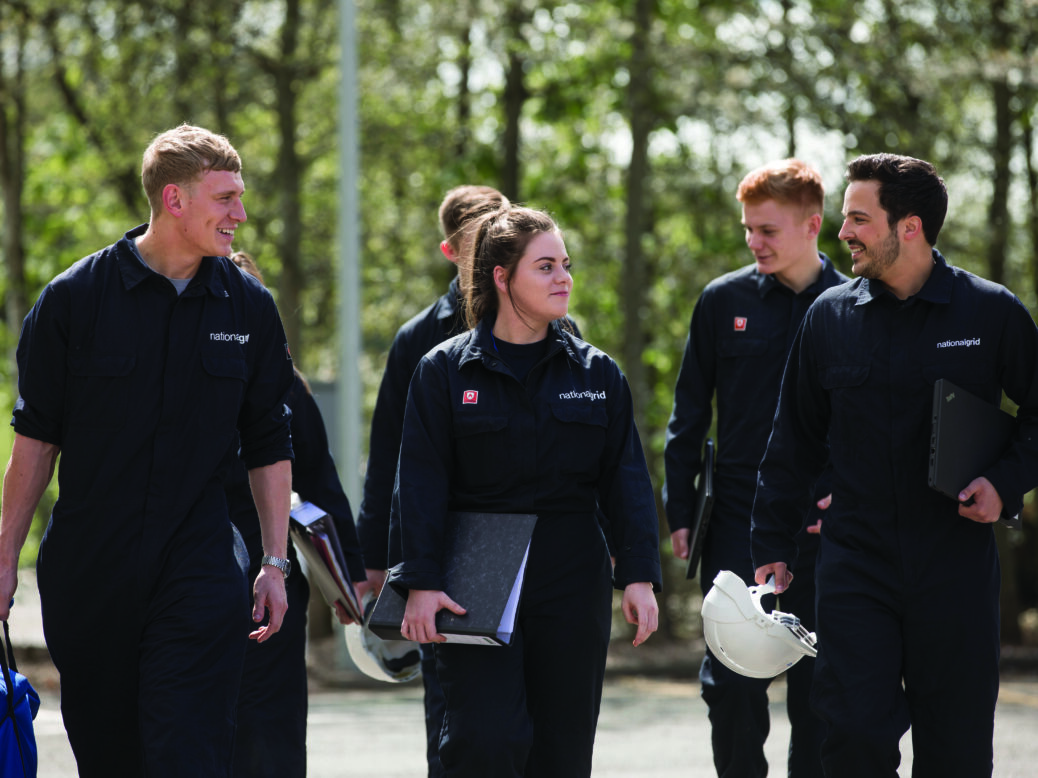
Imagine a United Kingdom that leads the world in driving a clean economy. A vibrant future that is clean, green, and thrives with nobody left behind. It is a future we believe in at National Grid, but one that requires significant change and immediate action. The UK is already a world leader on climate change – exporting technology, transformational engineering, and know-how globally. But to cement this position, and reach the government’s target of net zero, a shift is needed in the way we think, plan, and deliver for the future.
There are five key areas where we believe major change and progress is needed to reach the decarbonisation goal, and it will take major change and commitment from government, from the regulator, and from our industry to get there.
First, electrification needs to happen at scale. The net-zero report from the Committee on Climate Change (CCC) suggests we will need twice as much electricity tomorrow as we do today, as our electricity network not only keeps the lights on, but also keeps transport running, industry producing, and people’s homes warm.
To meet that demand, we need to increase the amount of clean electricity we produce. That requires strategic thinking about infrastructure. Take offshore wind as an example. We have 8GW of offshore wind today, but that needs to jump to 75GW under net zero. Historically we have connected wind farms to the grid one by one, like the spokes on a wheel. But now we need to plan not just for the next wind farm, but for the next 50, developing long-term solutions to ensure we do not create bottlenecks and that we minimise disruption for coastal communities. Our engineers are working up potential solutions but, to succeed, we need both government and the regulator focused on what the energy system of tomorrow looks like, rather than the system of today.
Second, we need to address the challenge of decarbonising heat, which accounts for more than a third of UK emissions. Technologies include electrification through heat pumps, hydrogen solutions, and biogas. But all are expected to be costly and disruptive in isolation, and this is where industry innovation and transformational engineering will be needed to reach the right solution.
We believe a mosaic of these will provide the answer as different home environments will lead to different heating solutions. While hydrogen may be an option, heat pumps would be more appropriate and cost effective for well-insulated homes and new housing stock. But poorly insulated homes account for the majority of current UK housing stock. For these homes, a hybrid solution of a heat pump alongside an existing gas boiler would enable immediate change, while avoiding the considerable additional cost and disruption to consumers of having to retrofit their homes today.
Third, we need to consider how to capture emissions. There is still a role for gas to play in the wider system – the CCC expects gas consumption under net zero to still be 68 per cent of current levels. So carbon capture usage and storage (CCUS) will be a crucial technology, particularly for industry. At National Grid, we’re exploring this in partnership with Equinor and Drax to create a net-zero industrial cluster in the Humber region. It is a groundbreaking project with the capacity to protect 55,000 jobs and save local industry a potential £27.5bn in carbon taxes by 2040. The Humber region could capture 15 per cent of the UK’s current annual carbon emissions.
But this is a pilot project, and is just one of six industrial clusters that we believe will be needed if the UK is to grasp this opportunity at scale. For this to become a reality, government commitment and a clear policy framework are urgently needed.
Fourth, we need to think about transport, which currently contributes more than any other sector to UK carbon emissions. This is where we need answers from within our industry. Could hydrogen power HGVs? Could ammonia help decarbonise long-distance shipping? But we also need commitment from government once again on infrastructure. Removing diesel and petrol vehicles from our roads and replacing them with electric vehicles is a critical part of transport decarbonisation and will improve air quality. For that to happen at scale, a strategic charging backbone is needed across the whole of the UK to ensure drivers are always within 50 miles in any direction of an ultra-rapid charging hub.
Finally, to reach net zero, we will need a highly skilled workforce. The UK faces a significant skills gap, with an additional 59,000 engineering graduates and technicians needed each year to fill core engineering roles. At National Grid, we call it the job that can’t wait and we are recruiting at all levels to ensure we can deliver on our ambitions.
Consumer behaviour will need to change – the way we heat our homes, travel to work, the jobs we do, and the way we use energy will be different. But it’s down to industry and government to work together to make those changes easy for consumers to adopt and, above all, to ensure the benefits of moving to a net-zero future are felt by everyone.
For the government, this means embedding net zero across all government departments and at all levels of government. For the regulator, this means making net zero an explicit and central pillar of its statutory duties.
It is easy to feel daunted by the scale of the challenge, but there is no time for that. To achieve net zero, we all need to think and plan differently. With all eyes on us as the UK prepares to host COP26 next year, we need to ensure industry, government, and the regulator are working in partnership to solve the challenges that lie ahead and to cement our position as a global leader on climate change.



